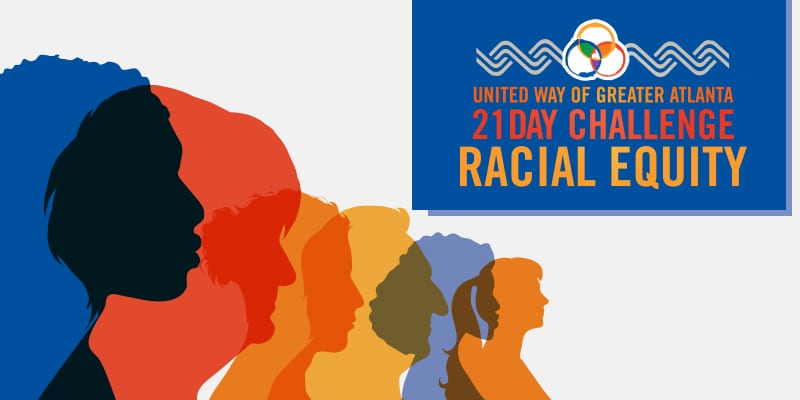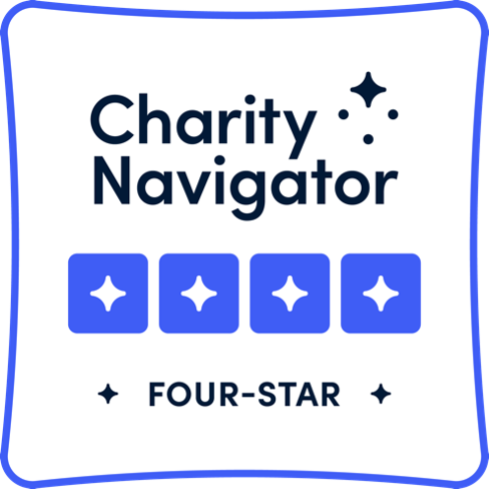The 21-Day Racial Equity Challenge is a powerful opportunity to develop a deeper understanding of how inequity and racism affect our lives, our Greater Atlanta community, and the barriers it places on improving child well-being.
The 7-week self-guided learning experience explores the history and impact of racism and how it has shaped the well-being of our communities across Greater Atlanta. Topics include Understanding Privilege, History of Racism in Atlanta, Housing & Redlining, Intersection of Race + Gender, Allyship, Champions Leading Equity, and many more. Gain both local and national insights, get the tools for courageous conversations, access resources for healing, become an ally or level up your allyship, plus, make connections to a network of leaders working to create an equitable Greater Atlanta for all.
Join as an individual or sign up your company or organization to support the challenge and learn together.
Racial Equity and Child Well-Being
Racial equity is central to United Way of Greater Atlanta’s work to improve child well-being so that children, families, and communities can thrive. Disparities across race and zip codes are holding us back and limiting the opportunity for an equitable Greater Atlanta. Ending disparities has been the guidepost for United Way of Greater Atlanta’s Child Well-Being Agenda, which has focused on addressing the systemic issues that put Greater Atlanta at the bottom of the list of U.S. cities in terms of opportunity and mobility for low-income children and make a child’s zip code of birth their destiny. For two years running, Bloomberg has called Atlanta “the capital of inequality.”
The 21-Day Equity Challenge is a powerful opportunity to develop a deeper understanding of how inequity and racism affect our lives, our Greater Atlanta communities, and child well-being. For the past five years, United Way of Greater Atlanta has worked closely with partners to collect data on 14 different measures related to the factors that help account for the wide disparity in child well-being by race and zip code. These communities of low and very low child well-being are in zip codes where the majority of residents (55-99%) are people of color.





